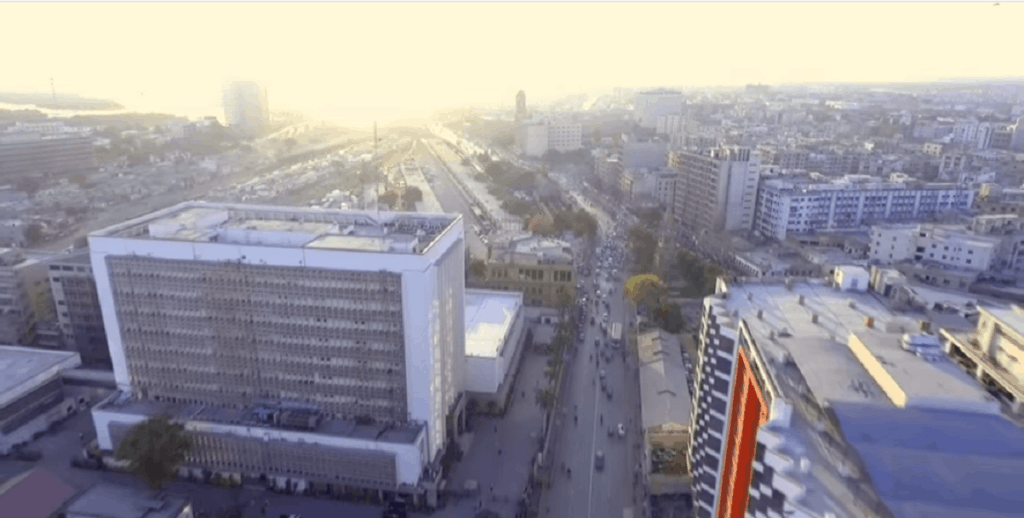By Prof. Engr. Zamir Ahmed Awan
The outbreak of COVID-19 has taught a bitter lesson to everyone. Developed World has experienced helplessness under COVID-19, and faced a severe shortage of Ventilators, Testing Kits, Masks, Sanitizers, and even toilet paper and soap.
In order to maximize profit, most of the Multinational companies shifted the Industry to developing countries and focused on big markets. Big markets, big profit but big risks too.
As a result, in case of a crisis, they were not able to produce requisite equipment and medical supplies domestically. Depending on imports has embarrassed them.
There exists a strong feeling that Multinational companies should not focus on only big countries abroad, instead of diversifying their investments in many more middle-sized countries, who cannot monopolize in case of emergencies – do not keep all the eggs in one basket. Due to the high cost of manufacturing, they cannot compete while manufacturing in their own countries. To avail the lower labor cost and raw material, Multinational companies have to invest in small and medium-sized countries.
Pakistan is one of the most suitable destination for Multinational Companies and international investors. Pakistan was a victim of the four-decade-long Afghan war and suffered a lot in terms of human lives and the economy. Intolerance, extremism, drugs & gun culture, and terrorism was a gift of the Afghan war. Being a victim of proxies and International intelligence agencies, Pakistan deteriorated a lot.
During the last decade, Pakistan reformed its policies and kept a distance from any war. Pakistan became partner with all countries in peace only. National Action Plan was formulated to de-radicalize the society and successfully rooted out the terrorism. Tolerance, peace, and harmony was promoted. As a result, Pakistan was able to restore its traditional values and culture. Pakistan’s distorted image has been improved a lot and ready for economic take-off.
Pakistan is blessed with rich natural resources, diversified minerals, and the mining sector is one of the basic strength for Industrialization. Agriculture is the backbone of Pakistan’s Economy. Approximately 70% of the population is youth under the age of 40, and a qualified workforce ensures a bright future for Pakistan. English is widely spoken in Pakistan and has a long history of interacting with foreigners. Pakistani society is friendly and peace-loving, can absorb foreigners easily. Law and order situation has improved a lot, flexible and friendly policies were introduced. As a result, Pakistan’s economic outlook gained recognition.
Recent Moody’s ratings on Pakistan are encouraging. IMF, World Bank, and International Financial Institutions have shown confidence in Pakistan. Economic indicators are improving gradually. The flow of Foreign Investment is growing at a good pace.
China-Pakistan Economic Corridor (CPEC) initiated with an investment of $46 billion, enhanced to $62 Billion, and may also increase in the future. Saudi Arabia has pledged to invest $20 Billion in Oil City near Gwadar, Russia has a similar pledge, UAE is willing to invest heavily. Japan, South Korea, and Malaysia have a keen interest in investing in Pakistan. EU is engaged with authorities in Pakistan for several projects. The US has planned to send high-level trade delegations with plans to invest in Pakistan heavily.
Pakistan’s liberal and flexible policies, an abundance of raw material, a qualified yet competitive workforce, and its geostrategic location – connecting with almost half of the world, are the decisive parameter for Multinationals Companies and investors. Pakistan itself is 220 million population – a considerable big market. However, 1.2 Billion and 1.4 Billion huge markets of India and China are in the neighborhood. Middle-East, Africa, Europe, Central Asia, and East Asia are easily accessible markets from Pakistan.
Yet, Pakistan is not an over-ambitious country and has no capacity or will to monopolize. Pakistan is a moderate, peace-loving nation and respects international norms and practices. Pakistan was founding member of GAAT and WTO, and signatory of almost all international agreements, protocols, and frameworks.
Post COVID-19, Pakistan sees a big change and having full capacity to be the next destination for Multinational Companies and Investors. Under the light of lessons learned during the outbreak of COVID-19, the changes are inevitable and Pakistan is fully prepared for hosting any emerging demand.
Author: Prof. Engr. Zamir Ahmed Awan – Sinologist (ex-Diplomat), Editor, Analyst, Non-Resident Fellow of CCG (Center for China and Globalization), National University of Sciences and Technology (NUST), Islamabad, Pakistan)
(The opinions expressed in this article are solely those of the author and do not necessarily reflect the views of World Geostrategic Insights)







